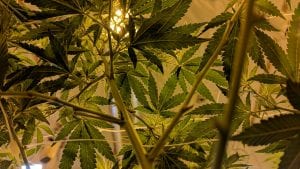As attitudes toward marijuana change, cannabis law is changing, too. Many states are legalizing recreational use, an expansion over medical use only.
Attitudes toward cannabis are constantly changing, and even the new laws are reflecting that. What are the latest developments and updates in cannabis law in the different U.S. states? Check these out.
Cannabis Law in California
Under Proposition 64, adults are legal to use marijuana.
Adult Use of Marijuana Act allows those over 21 years old to use, possess and give away up to an ounce of marijuana. They’re also allowed to cultivate at most six plants for personal use, but at their residence.
This law also permits commercial production, distribution, and sale of marijuana for adult use at facilities beginning January 1, 2018.
However, there are terms spelled out in the “Medical Adult Use of Cannabis Regulation, and Safety Act,” as approved by 2017 legislature to follow. Even then, county and local governments can ban or restrict cannabis.
Medical marijuana, which is available at a Los Angeles Marijuana Dispensary, is also legal for patient use provided they have a doctor’s recommendation under the 1996 medical marijuana law of the state.
However, Prop 215 provides more rights to cultivate and possess marijuana for personal use than AUMA does.
Before the AUMA, medical cannabis, distribution, use and production was permitted under the SB 420 of 2004, in loose terms. However, the collectives of such law were subsumed in the licensing system and state regulation since 2018.
Cannabis Law in Nevada
Those 21 years old and above are allowed to possess up to an ounce for recreational use, or 1/8 oz. of concentrate. [Concentrate is a separated resin, whether purified or crude.]
In Nevada, it is illegal to consume cannabis in public places. Homeowners can also disallow the use of it on their property.
Some places where cannabis is illegal include casinos, hotel rooms, universities, schools, office buildings, bars, restaurants and common areas in apartment buildings.
On the other hand, it is legal to consume pot in social use venues, but this is not yet implemented. It will be in effect in 2021.

For penalties, smoking weed is a misdemeanor. Violating this rule comes with a $600 fine.
Marijuana can be bought in licensed dispensaries, but buyers must show their identification card. They shouldn’t also consume pot in public, but only in their homes. Cannabis should also remain in a sealed container on the drive home. It should not be in sight, but in the glove compartment or trunk. No one is allowed to consume pot in a vehicle.
Cannabis Law in Texas
Texas goes its own way in marijuana attitudes, which are changing fast all over the U.S. While neighboring states have already passed laws to permit medical cannabis use, recreational use and decriminalizing offenses, this state continues to punish cannabis offenses.
When it comes to medical cannabis, Texas permits a limited use. Patients should only use cannabis with low THC and high CBD content.
Even a small amount of cannabis can put you in jail. For example, as little as two ounces can land someone in jail for 180 days along with a $2000 fine. Speaking of penalties, they’re more serious for possession of hash oil and other concentrates, carrying a felony charge and at most two years in jail.
Cannabis Law in Hawaii
According to this source, the new state law removes jail time possibility for an offense of carrying up to three grams of cannabis but retains a fine of $130. This new law will be effective starting January 11, 2020.
When it comes to medical marijuana, it’s allowed in the state and patients can possess up to three ounces of MMJ.
Cultivation, on the other hand, is allowed for no more than seven plants. But then, no more than three of these plants may be mature. A few of the qualifying health conditions include:
· HIV or AIDS
· Glaucoma
· Chronic pain
· Cancer
· Nausea
· Epilepsy
· Multiple sclerosis
There are no state-licensed marijuana dispensaries.
Cannabis Law in Florida
Medical CBD law allows cannabis use, but it is limited to products high in CBD concentration and low in THC content. Some qualifying health conditions include glaucoma, movement disorders, pain, and spasticity.
There are now amended criminal penalties in Florida for cannabis related crimes, also known as HB 25, which reduces criminal penalties for the possession of THC and cannabis products. Juvenile offenders would also be eligible for diversion programs or civil citations.
The City of Miami Beach banned smoking pot in public including in beaches and parks.
Meanwhile, SB 670 would ban vaping and smoking within state parks.
Under HB 149, companies that can sell and grow cannabis will be redefined. It will also define treatment centers as well as govern how the state health department would dole out licenses to both dispensaries and growers.
There you have some major laws governing cannabis use, distribution, sale and cultivation in different states. While the above doesn’t comprise all, they cover and give you an idea on the different cannabis laws in different U.S. states.
Stay tuned for more updates on this story.


Join the conversation!